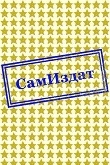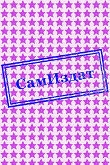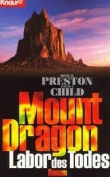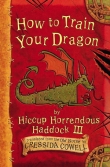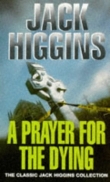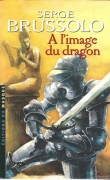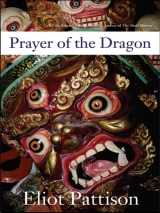
Текст книги "Prayer of the Dragon"
Автор книги: Eliot Pattison
Жанр:
Полицейские детективы
сообщить о нарушении
Текущая страница: 17 (всего у книги 24 страниц)
Chodron’s mistress was named Jiling. She worked in the municipal affairs office and was responsible for census data and the distribution of funds to the county’s villages. Chodron had found the perfect partner. Now Shan understood how he was able to function in an official capacity in an unofficial village.
“I don’t know you. Are you from Lhasa?” Jiling asked after his first quick round of questions. She had chosen to wear an austere dark blue suit. She took back her identity card when Shan finished with it and kept it in her hand. “I saw the banner,” she said in a hoarse whisper.
“I am from Beijing.”
The woman slumped.
“Cooperate now and you may not hear from us again.”
“I don’t know anything.”
“You have already told me you are involved in the administration of the villages in this county.”
Jiling looked down at her identity card. “It is a big county,” she observed, beginning her defense.
“Surely you know the penalty for misappropriation and misal-location of public funds.”
The color drained from her face. Executions were almost always public events in China, but the ones that were given the most publicity, that sometimes filled entire stadiums, were those of corrupt officials.
“I have over a hundred villages-”
Shan cut her off with a wave of his hand. “There is a saying in English-If a tree falls in the woods and no one is there to hear it, does it make a sound?”
“I don’t-I don’t understand.”
“If villagers don’t exist, are their tax payments considered public funds?” He gestured toward the opulent furnishings of the sitting room. “If we have to continue this after today’s visit, you will be required to provide receipts for everything in this house, with the source of payment for each.”
Jiling straightened in her chair. “I am merely a low-level official,” she declared.
Good, thought Shan. The ones who crumbled immediately were usually the least helpful.
“Drango village is on the official list,” she added.
“But what is its official population count?”
“Thirty,” she admitted, her voice cracking.
Shan had seen more than double that number of people in the village. So Chodron could collect taxes from everyone and pocket the difference. The village might appear on the official rolls but half its taxes never reached the government. No one would have complained. The villagers who realized would have considered it protection money, a fee for keeping the government away. An antitax.
Shan studied the woman, refilled her glass for her, began casually asking about her office, about her superiors, about where she and Chodron kept their bank accounts, whether she traveled with Chodron at Party expense. These were tedious queries that Shan could propound by rote, and which any experienced bureaucrat would expect to be included in such an interview.
“Where do you sell the gold?” he asked abruptly.
“I don’t know what you are talking about.”
Shan gave an indifferent shrug. “If you won’t speak about it then you just give him the opportunity to do so first, to use the information for negotiation. It will be an interesting dilemma for the prosecutors, who to make their primary target. The attractive, well-educated Chinese bureaucrat versus the Tibetan farmer. Except the farmer is a revered Party member.”
Jiling no longer fidgeted with her identity card. She was squeezing it so hard it began to dig into her flesh, drawing a thin line of blood. She calmly stepped to the sink and washed her wound.
“Who are you if you are not with Major Ren?” she asked from the counter.
“Perhaps you should look outside.”
Jiling studied him uncertainly, then went to the front window. She pulled the drapery cord, opening the curtain only a few inches. When she finally focused on the brown sedan parked outside she pressed a hand against her heart.
Shan approached the window. Gao was leaning against the car smoking, though Shan had never seen him with a cigarette before. The woman from the factory office now sat in the driver’s seat, strangely transfixed, eyes forward, hands on the wheel.
“Some people said he was dying in his castle in the mountains.” Jiling spoke in a whisper, as if fearful Gao might hear. “Others said he went back to Beijing to live in a palace. They call him the chairman’s chief sorcerer.”
“When Chodron is here, who is he exactly?” Shan asked.
There was another car, a black utility vehicle, parked fifty feet behind Gao’s. “Do I need to invite him inside?” he continued when Jiling did not answer. Then his mouth went dry. Two men in gray uniforms got out of the utility vehicle and began walking toward Gao.
“Chodron has offices in the county Party administration,” Jiling told him. “He used to be termed the chief Party representative for the rural proletariat. Now they call for ethnic diversity in the Party leadership. The last title they gave him was secretary for indigenous agrarian workers.”
That explained how Chodron managed to come and go as he pleased, an official without portfolio, though if he spent too much time in town with his Chinese mistress he might jeopardize his standing.
Jiling had gone silent. She was looking at his feet. Shan had forgotten his tattered boots.
“Undercover work,” he asserted. He motioned her toward the table. She hesitated, glanced from Shan to the men outside.
“If I need to summon them I will,” Shan said. “But I assure you I will try not to involve you further. Write down what you have told me. When Dr. Gao comes to the door, hand him the statement.”
“Where are you going?”
“To interview the groundskeeper,” Shan ventured.
“He’s nobody, some old Tibetan.”
Shan pointed to the table. She looked at his boots, then at Gao and the knobs outside, then retreated to the table and began writing.
Shan quietly slipped through the rear door and scanned the yard. The groundskeeper was sleeping against a tree, his chin propped on his chest. Shan removed his lanyard, pushed it into the pile of plucked weeds near the man’s feet, and entered the shadows at the back of the yard. The small strip of forest behind the row of houses gave him cover until he reached the street, two hundred yards from Chodron’s house.
His eyes stayed on the town’s tallest building but his feet, as if by an instinct all their own, went in the other direction. In a small park consisting of a derelict playground and a grove of trees, he settled onto a bench made of cinder blocks and weathered planks. His ribs were aching from his beating at Little Moscow. He lowered his head into his hands. He had not felt such despair since the early days of his exile and imprisonment in the gulag. His life was spiraling out of control. The lives of everyone close to him were threatened by dark destinies-prison, a firing squad, cancer. Murderers who hacked off hands were loose on Sleeping Dragon Mountain and he could protect no one. He needed to rest. He needed to meditate, to expunge the despair from his mind, to expel the pain from his body. He needed to do what Gendun called taking himself out of himself.
As if from a great distance he watched three children play on a broken swing, hanging on the side chains, chinning up the support poles. Once he would have been warmed by such a sight. He had spent years learning from the old Tibetans how to savor the simple joys of life. Now, after ten days with Chodron, Gao, and the faceless killer, the sight of the children only brought sorrow.
He did not know how long he stared at the cracked dirt at his feet, or when exactly he looked up at the children again. They had stopped playing and were gazing at a patch of sunlight in the trees in which a man stood. The man was at least twenty years older than Shan, a Tibetan, wearing clothes that were patched and threadbare.
His legs and arms were in constant, though very slow, motion, his hands like the heads of two swans on long graceful necks. He was performing a combination of Tai Chi and Buddhist meditation exercises. Shan found himself walking toward the man. Loose threads hung from his frayed pants over his bare feet. His serene smile showed he was missing most of his teeth. His thin wispy hair was mostly gray. He was oblivious to Shan, oblivious to the children who watched. They shrank back, awe in their eyes, as the man began to jump in great arcs until one of his leaps placed him under the swingset. He grabbed the overhead pole and propelled himself upward. He kept his grip, working his legs to gain height, so that soon he swung in nearly a half circle, his face lit with joy.
Shan watched as if in a trance. Though he could not explain why, as the old man swung, his despair lifted. Finally, he turned his gaze toward the government tower and began walking to it. At the edge of the park he turned for a moment. The serene old Tibetan was still swinging.
When he reached the building he studied it, walking circuits around it, noting the unmarked Public Security vehicles behind it, the steps at the rear that descended to a heavy metal door, the small slits of windows just above ground level covered with thick wire. As he watched, the rear door opened and a man was carried out on a stretcher, his feet in chains. From behind a truck, Shan dared a glance at his contorted, swollen face. Too old for Yangke, not old enough for Hostene.
He ventured into the reception area, searching for video surveillance equipment. Seeing none, he went to the building elevator. Public Security had offices on the third floor. There was no listing for the basement.
Out front he noted three gray utility vehicles, bearing license plates for Lhasa. He circled the building. A dented, unwashed van pulled up in back of it. The driver, a plump, middle-aged man in a white shirt, opened the back doors and began lifting out shiny metal buckets and plastic containers. The instant Shan smelled the steamed rice he emerged from the shadows. Then he extended one of the remaining gold nuggets to the deliveryman.
He carried two buckets of steamed rice, walking one step behind the deliveryman. The guard inside the door, more interested in the food than its porters, waved them toward a sterile-looking room at the end of a row of cells. At a table in its center sat another guard, working on documents. Shan set a small container of soup onto the table too close to the edge. Some of its contents spilled onto the papers.
“ Ta me de!” the guard yelled, then launched himself toward a shelf on the rear wall that held bedding and towels. The door guard ran over to gather up the papers. The nervous deliveryman, backing up, upended a bucket of rice Shan had set on the floor behind him.
As the cursing guards bent over this new mess, the deliveryman shouted for Shan to bring rags from the van. Instead, Shan darted down the dimly lit row of cells. A teenage boy sat in the first, his arm in a sling. In the next cell was a Chinese girl, lying on the cement floor, a vacant drug-induced grin on her face. An overweight man in a sweatsuit slept in the next. The remaining cells were empty, except for the last, its door open, where another guard lay on a bunk, snoring. Then Shan saw the metal door at the end of the cell block and realized his mistake. As new prisoners, Yangke and Hostene would still be in the interrogation rooms. He opened the door and shut it behind him, leaning against it for a moment, gathering himself, bracing for the inevitable scents of urine, antiseptics, singed hair, and vomit.
Six more metal doors awaited him, three on each side of the corridor, each with small squares of wire-strengthened glass at eye level. The first two were open and empty. Shan flicked on the lights in the second, revealing a metal table, three metal chairs, and a large metal bucket. On the table were a pair of needle-nosed pliers, dental probes, a ball-peen hammer, and leather straps used for binding prisoners to chairs. In the air was a new odor, the faintest scent of cloves. The knot in his stomach tightened. It was an old trick from the gulag, one he had nearly forgotten. Pull out a tooth and offer oil of cloves to deaden the pain. Then pull out another and withhold the oil.
The next room was locked but lit, its sole occupant a man sitting on the floor in the shadows of the far corner, beating his head against the cement wall.
He found his friends in the last room. The door was open. Yangke stood behind Hostene, who sat at a table opposite a young uniformed knob officer. There were paper and pencils on the table on which were written half a dozen simple words in the Roman alphabet. Hostene was teaching the man English. As Shan eased the door shut, Yangke awkwardly gestured toward a table bearing two large thermoses and mugs with domed porcelain caps. “There’s tea.”
His friends were unharmed. A dozen questions sprang to Shan’s tongue but he choked them down, uncertain of the role he was to act in their little play. Strangely, he was more certain of how to address the knob officer. “Are you with the Lhasa team?” he asked.
The officer turned the papers over, then stood and retrieved his uniform hat. “Major Ren? Of course not. Those red-banner men are. . He only comes when. .” The young officer could not finish his thought.
“We have to go,” Shan ventured.
“I haven’t received instructions,” the officer replied. Shan studied him. He had a careful, educated air about him. He relied on instructions, not orders. On his collar was a small brass star in a circle, an emblem unfamiliar to Shan.
Another knob entered the cell, glaring at the younger officer, gesturing to someone in the corridor. A man in manacles, wearing a prisoner’s hood, appeared, followed by an officer in his forties, who gave the prisoner an unnecessary shove. Without thinking Shan went to Hostene’s side.
This officer had a cold, sleek countenance, his hair oiled and combed back, his thin, pockmarked face like a hatchet. Around his arm was a band of red and black. One side of his mouth curled upward as he examined first Yangke, then Hostene, and finally Shan.
“Where is he?” the officer snarled.
“Not-not here, Major,” the younger officer stammered.
The notorious Ren finally had a face.
Blood leaked from the bottom of the prisoner’s hood. The knob jerked the hood off. Hostene’s head shot up. Yangke gasped. It was Hubei.
“You fool!” the major snapped at the young officer. “Don’t you have sense enough to keep prisoners separate? Each man to his own interrogation room-now! No food or drink until I-” His words faded as he saw Hostene gaze over his shoulder.
“Surely,” came a refined voice, “you would not deny a meal to my colleagues?” Gao glided into the room, an expression of studied ease on his face. Behind him came one of the guards, carrying a tray of bowls heaped with rice, which he set on the table before scurrying away.
“This is not Beijing,” the major growled. “Nor one of your sacred research reservations. Here we are governed by the rules of Public Security.”
Gao calmly went to the tea table and then extended a steaming cup to Shan. “It has been a long day for us, Major. There have been unforeseen logistical difficulties requiring us to stop over in Tashtul and pursue different tasks. But now”-he indicated Hostene and Yangke with a sweep of his free hand-“now with the help of Public Security we have been reunited.”
Ren’s eyes narrowed. “Public Security?” he growled. “You mean with the help of these sniveling, ignorant babysitters?”
Shan gazed at Gao with new respect. There were indeed separate units of the Public Security Bureau assigned to protect and assist special people with special secrets. Given the many secret installations in the area, a post of such officers in Tashtul, wearing brass stars in circles, was to be expected. He remembered Gao’s worried reaction when he had seen the red banner that morning. He had known Yangke and Hostene would have no chance against Ren’s visiting squad, so had called in a preemptive strike. Never trust reality, Gao had warned on the park bench.
“Some aspects of security, Major Ren, require more subtlety than a gun and a baton.”
Ren seemed unconvinced. He gestured with one hand. His men sprang into action, stepping to either side of Hubei, dragging him to the end of the table and pushing him into a chair. In another few seconds they had produced leather straps and secured his arms to those of the chair.
Ren turned to Gao. “This man was found lurking about outside the bus station with a knife. He tried to flee when my men approached him. He can’t decide who he is. We know he’s a former prisoner from his tattoo. But he says he is a shepherd. Then, later, he said he arrived with your party. Imagine my surprise, a shepherd who knows of Gao. Your driver also paid three farmers to provide him with intelligence about a person coming from the mountains. One recognized his civic duty and came forward to confess. He waits in the next room. He has already spoken of mysterious caravans that head into the mountains in the spring.”
“We have had this conversation before, Major Ren,” Gao said, barely stifling his impatience.
“What were these men bringing to you?” Ren demanded.
Gao did not reply right away. He made a show of bringing tea for Yangke and Hostene before replying, “Your job is to protect state secrets, not to know them,” he finally said.
Ren made another gesture. One of his men produced a black box with a small rod extending from it, one of Public Security’s favorite imports from the West, a cattle prod.
Shan had to admire Hubei’s grit. Other than clenching his jaw, he showed no reaction to the first jab of the device onto his bared forearm. Behind his back the officer adjusted the output and thrust the rod between the rails of the chair, into Hubei’s spine. Hubei gasped, arching his back, lifting the chair off the ground.
“I have never seen this man before,” Gao said.
Ren extracted a folded piece of paper from the pocket of his tunic. “This is your shopping list,” he said to Hubei. “Medicine. A long bead necklace. A cardboard mailing box at least twelve inches long by ten inches. Small plastic sheeting in which to wrap the contents. Fifty renminbi postage.” He looked up with a surprised expression, as if reading it for the first time. “A lot of postage. With it one could send something heavy to the other side of the world. You shepherdsfascinate me. What kind of medicine?” He tossed the paper down on the table, then closed the door and nodded to one of his assistants, who lifted the prod again.
The miner, twitching, spittle hanging from his jaw, finally yielded. “I came on an errand,” he said with a groan. “I was sent on an errand, that’s all.”
“What kind of medicine?” Ren repeated.
“Painkillers. And stomach medicine.”
“Your big mistake, Gao,” Ren declared, “was not claiming this man to be one of your own. Now he is mine.”
Shan’s protest started as a hoarse whisper but grew louder as he met Ren’s gaze. “But he iswith us,” he began. “The professor can’t be expected to know every porter at every work site.”
“Making a false statement to me is a crime in itself. He said he was a shepherd. Was he lying?”
“We would be foolish not to have a cover story for all of our workers. More than foolish. Unpatriotic.”
“Unpatriotic?” The word seemed to catch Ren off guard.
“Tell me, Major,” Shan continued, “can you imagine a project more important to the people of China than sending a rocket to the moon?”
Ren studied Shan.
“An electropulse relay transmitter must be repaired,” Shan announced. “The part must be carefully packed, and a detailed description of the problem will be enclosed. The manufacturer is in Tianjin. If we handed it over to the army they would send it to their supply depot, fill out endless forms, and deliver it to the right place maybe four months from now. If it is shipped direct we can get it back in six weeks. There is a test launch in eight weeks. We must have a functioning transmitter by then. This man was bringing the packing material back to our camp. Until you stopped him.” Shan scooped the paper off the table and pocketed it.
“And the necklace?”
“Surely a man can be forgiven for trying to buy a trinket for a woman.”
Ren studied Shan with a cool, calculating expression. “Who are you?” he demanded.
Shan took a sip of his tea. “It was the Chairman himself who promised that the People’s Republic will put a man on the moon.”
“I asked for your name,” Ren pressed.
“I want yournames,” Gao shot back. “And that of every man in your squad. Name, rank, and serial number. I want to be able to identify of all those responsible if the launch test fails.” He turned to the young officer behind Hostene, who stepped forward with a pad of paper in his hand, nervous anticipation in his eye. “Do we list your office as Lhasa or Tashtul, Major?”
“Inner Mongolia perhaps?” Shan suggested.
Ren gripped the back of a chair. The raw fury in his eyes was aimed at Shan. A dozen thoughts raced through Shan’s mind as he returned the stare, ending with one that almost caused him to break away. Chodron. If Chodron were to walk through the door, Shan’s life wouldn’t be worth ten fen.
Ren paced along the far side of the table, pausing to give a muttered order to one of his men, who darted out of the room. “It’s peculiar, Comrade,” he said to Shan as he began releasing the straps binding Hubei. “You are wearing two pairs of trousers.” Something bright appeared in his hand, which he abruptly tossed across the table. As they watched, a flash erupted, and another. The second officer had returned with a camera, and by the time the object landed and rolled to a stop he had photographed each of their faces. They all stared at the object Ren had tossed onto the table. It was the gold nugget Shan had given to the deliveryman.
“I shall of course release your shepherd,” Ren volunteered as he pocketed the little nugget. “No doubt you need him to pilot a rocket.”
They were sober as they left the building and headed toward Gao’s car. Shan handed the list to Hostene, who thrust it into a pocket. As they reached the car Yangke halted. They followed the Tibetan’s gaze. Hubei was sprinting away.
“Shan is coming with me,” Gao announced to the others as he waved them toward a decrepit sedan bearing a taxi sign. “We will meet you back at the factory.”
Gao stayed in the taxi when they reached the bus station.
Shan found Hubei sitting on a wooden crate in the shade of the cinderblock wall of the station, stricken with fear. He had no resistance left in him.
“If you had told us about your brother it might have been different,” Shan said.
The miner’s eyes flashed but then he sagged. “No family, not ever, that’s Bing’s rule. It makes for too much conflict on the mountain. But then my younger brother came to me in the winter. He had lost his job as a chef, but he had big plans. All we needed was some capital and he would get us to Hong Kong, where we would start a restaurant. He would cook, I would be the manager. We always spoke in secret. We met at out-of-the-way places like in front of those old paintings.”
Shan thought back to the strange video that had so disturbed him. Abigail had told someone to think of his family and of the Eight Treasures in a Winter Melon, the classic gourmet dish. “Did he encounter Abigail at a painting site?”
“I told him to stay away, that foreigners were trouble. But he could speak some English. He began to help her with little things. Tashi didn’t like it. He threatened to tell her uncle.”
Shan studied Hubei. “Were you the one who found your brother’s body?”
Hubei’s voice trembled. “So much blood. At first I thought he must have been hunting for a goat for us to eat. But when I spoke to him, I saw something was wrong with his tongue. I kept talking to him, asking what was wrong, asking why he didn’t answer. Then I saw a stick of wood with eyes painted on it was jammed into his mouth. It took me a long time to realize that he was dead.
He couldn’t be dead! We had plans, we were going to start new lives. I didn’t know what to do. He had picked flowers and sprigs of juniper for an offering. I put them on his chest, and was going to cross his hands over them.”
“That’s when you saw he had no hands.”
The miner nodded. “I would have had my vengeance by now, but you came along.”
“It was you on the bicycle, with the club,” Shan said, “You who hung me on the rope today and beat me. You lit the fires in the barley to punish Chodron for failing to punish Hostene.”
Hubei said nothing.
“If you think Hostene killed your brother, why help his niece? Why undertake to do the shopping for the things on the list she gave to Bing?”
“Because it’s the way to find her again. And when I have her, I will get her uncle.”
“Where were your purchases to be taken?”
“Bing has a map. To a place with black sand, near the summit.”
“Why did she have your brother put out those skeletons?”
“She wanted to keep people away from the old paintings.”
“People?”
“Some of the other miners. There were legends about an ancient gold mine. I had told my brother about the skeletons Bing and I had set out, so he wouldn’t be frightened. He must have told her.”
There seemed to be a surplus of bones on the haunted ridge. “They were ancient bones, weren’t they?”
“Very old, I think. Last week, they all disappeared, even the skeleton on the grave.”
Right after Thomas had boasted of being able to tell old bones from new, Shan realized. But fortunately for Bing a new body had materialized, the corpse of the farmer who had been struck by lightning. Bing had staged his death as a murder to keep the miners frightened of the haunted ridge.
Gao was becoming impatient. Shan went to the car and spoke to him.“How do I find this black-sand place?” Shan asked Hubei when he returned.
“It’s past the old shrines, near the top of the mountain. All summer she kept moving higher up the slope, looking for paintings with the little ovals. Watch for the crazy monk, if you want to find her. She could speak to him, calm him, and get him to help her.”
“What do you mean, little ovals?”
“Tiny ovals, outlining shapes. She taught my brother to use her video camera, so he could take pictures of them.”
A siren blared. Hubei looked as if he were about to bolt.
“Do you know what reincarnation is, Hubei?” Shan asked.
“This is Tibet. Everyone knows.”
“You have just been reincarnated, without going to the trouble of dying. Congratulations.”
Hubei stared at a paper Shan had dropped into his lap.
“It’s a ticket to Golmud, in the north. A big factory town. Lots of jobs. You’re not going back up the mountain.”
“Like hell.”
“I’m saving your life. If you go back up the mountain you won’t survive the summer. What do you think Chodron and Bing will do, once they find out you burned the barley fields?”
As they spoke a bus pulled up, northbound.
Hubei stared at the bus, stared at the ticket, then boarded the bus.
“There are sleeping quarters upstairs,” Gao announced when they met the others at the company compound. “I will arrange for food.”
They ate in the conference room, with the driver perched at the window like a guard.
Hostene broke their weary silence. “She intended to trick us. Abigail never left the mountain. I don’t understand.”
“She intended to make you leave, to get you out of harm’s way. She knew Thomas had been killed, and she knows the killer is close. But she is determined to reach the summit. Only two things are important to her now-your safety and reaching the end of the pilgrim’s path.”
“A cheap trick,” Hostene said. “We came all this way because of that damned Bing.”
“It was hertrick,” Shan pointed out. “Abigail wrote that note willingly.”
Hostene nodded. “She doesn’t want us to interfere. She asked us for a box and postage. She means to send her work home.”
“It’s as if she-” Gao did not finish his thought. As if she didn’t expect to make it off the mountain.
“If the doctors are right, she has three or four months before her strength fails.”
“If I went to Ren right now and explained, he would forget the rancor between us,” Gao said. “This is the kind of thing he lives for. He could have a hundred men on the mountain tomorrow.” He handed a folded paper to Shan.
“No,” Hostene said, and it seemed to settle the point. “It’s between me and Abigail.”
“And the killer,” Shan added.
“And the killer,” Hostene repeated. “But if we don’t find the killer, what becomes of Lokesh and Gendun?” he asked Shan. This was the question that never left Shan’s mind.
There were only three beds for visitors in the upstairs chamber. When Shan arranged a blanket for himself on the floor Yangke argued, saying he should take it, as the youngest, relenting only when Shan explained that after so many years in prison he was unable to sleep on a mattress.
As Gao began to draw the curtains Shan put a hand on his arm. “No. Don’t give them any reason to think we are trying to hide.”
“You think they are watching? Impossible.”
“Some people feel impending rain in their joints,” said Shan. “I can feel Public Security in my spine. They are out there, a team, at least two men, maybe four.”
“What are we going to do?” asked Yangke in alarm.
“What we are going to do,” Shan said as he removed his outerwear and stretched out on the floor, “is sleep.” But he did not sleep right away, for he had read the folded paper from Gao. It was a record of Bing’s assignments in the Public Security Bureau. For the five years immediately preceding his retirement, Bing had been commander of prison guards at a gulag camp near Rutok.
It was perhaps two hours past midnight when Shan awoke, trembling, from another recurring nightmare about Gendun and Chodron. Lifting his boots from the floor beside him, he tiptoed down the stairs, into the silent factory building.
There the gods awaited him. Lit by moonlight filtering through a high window, tiered rows of tiny Buddhas, Taras, and saints stood, waiting to be painted and packaged. An army of miniature Tibetans waiting for a signal. Lokesh would have said a prayer over each one.
He sat in a pool of light facing the little figures, like a lama facing his students. Or perhaps from another perspective, they were like a legion of lamas patiently abiding their single, faltering student.

